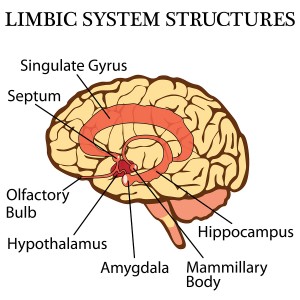Just breathe. These two words are often uttered during times of emotional distress. Whether someone is hyperventilating, sobbing, or simply stressed, the go to method for calming oneself down is taking deep breaths. But is this something that people do just because it is something people have done, or is there a scientific reason for why we are advised to take deep breaths in stressful situations?
In order to understand whether or not the deep breathing has a positive, calming effect on people when under stress, we first need to understand what is occurring in our brains during these times. When put in a stressful situation, or a time of perceived danger, the brain is signaled, by visual and auditory cues. These cues are interpreted by the amygdala, the area of the brain responsible for emotional processing. Fun side bar, parts of the Disney Pixar movie “Inside Out” took place here. I digress, once the amygdala interprets the cues, it in turn signals a different part of the brain, the hypothalamus.
The hypothalamus acts as a modem for communication. Working primarily through the autonomic nerve system, it is responsible for many of our involuntary bodily functions, i.e. the ones we do not consciously control, blood pressure regulation would be one example of this. In relation to our body’s response to stress, once the hypothalamus is signaled, it does two things. First, it signals the autonomic nerve system to trigger a release of epinephrine (adrenaline), via the adrenal glands, into the bloodstream. This release of adrenaline results in a person experiencing elevated pulse and heart rate, as well as rapidness of breadth. Other senses may be heightened as well. Then, once those effects begin to wear off, the second phase of the body’s stress response is activated. This backup response is called the HPA axis. Its purpose is to keep that state of heightened awareness caused by the initial response of the hypothalamus going. It does so through the use of various hormone releases. After the situation which caused this response passes, the parasympathetic nervous system halts the response, and you start to regress back to your original state.
Like the body’s natural stress response, it has a relaxation response as well. This occurs at the end of the stress response with the triggering of the parasympathetic nerve system. Deep breathing helps stimulate this nerve system. The relaxation response alters the body’s response to stress. It does so in a myriad of ways. Immediately after one begins to breathe deeply, the heart rate slows, blood pressure decreases, and muscles relax. Therefore, calming oneself. It is key however, that when one is practicing these deep breaths, that they are true, deep abdominal breaths. Continuing to breathe shallowly will not have the same effect to trigger the relaxation response.
So as it turns out, when given the advice to “just breathe” when you are stressed, do not just shrug it off and ignore them. It actually helps and will rapidly improve your physical state. Don’t stay stressed, just breathe.
Picture Links:





I learned a lot about the importance of deep breathing when I took a course on sleeping properly. I think that it’s super important to be knowledgable about tactics that can help you calm down quickly, especially during a time as stressful as university. I love to sing, and I know that the type of breathing required makes it a stress relieving exercise for me. I looked for some deep breathing exercises after I read your blog, and this is what I found:
http://greatist.com/happiness/breathing-exercises-relax